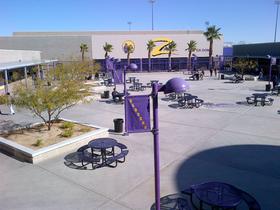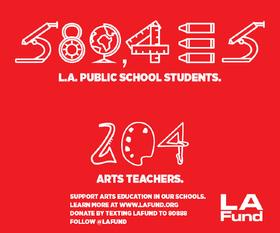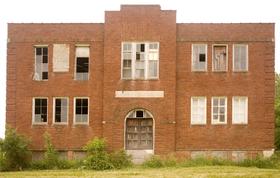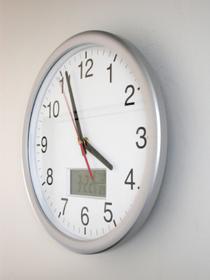One of the largest school districts in the country is heating up the voucher debate, with recent budget proposals by the governor. Wisconsin Governor Scott Walker has proposed an increase in funding to expand the voucher program beyond Milwaukee and Racine to other areas of the state. In addition, more money would go into the voucher schools already operating in the Milwaukee and Racine school districts. At the same time, Walker wants funding for public schools to remain the same for the next two years. His proposals have rankled many Wisconsin residents and taken the voucher debate to a whole new level.
This video reports on the heated opinions about Wisconsin's voucher program.
Details of the New Proposal
According to the , Walker wants to increase taxpayer funding to voucher schools by at least nine percent. On the flip side, Walker is asking for a one-percent increase in funding for state general aid, with provisions that would require public schools to ask for a referendum if they wanted to increase classroom resources. This new proposal would mean around $73 million in additional funding for the small voucher school network and around $129.2 million for the much larger public school system. The discrepancy in the numbers has some Wisconsin residents crying foul.
Walker’s plan would allow new districts to open up voucher programs if the district has at least 4,000 students and two schools receiving failing grades on the state report cards. The state currently has 42 districts with at least 4,000 students. Of those districts, eleven have at least two schools with a failing grade, including Green Bay, Beloit, Fond du Lac, Madison, Kenosha, Superior, Waukesha, Sheboygan, West Allis-West Milwaukee. Those districts are in addition to Milwaukee and Racine, the two that already have voucher programs in place.
One of the school districts to get hit the hardest by Walker’s budget proposals would be Milwaukee Public Schools. The district was expecting a minimum of a $50-per-pupil increase to next year’s budget, which they have already begun circulating to district principals. Now, the cash-strapped district won’t be seeing any increase to per-student spending, and administrators in Milwaukee are more than a little disappointed by the news.
“This is devastating,” Larry Miller, a member of the Milwaukee school board, told the Journal Sentinel. “We lose the enrollment [to more charter and voucher schools] and we lose the funding because there’s no increase to the revenue limit.”
Although educators, Democratic lawmakers, and even some Republicans in Milwaukee have voiced concerns about the plan, Walker is standing by his proposal. Some Republican lawmakers are also supporting the plan. Assembly Speaker Robin Vos (R-Rochester) told the Journal Sentinel, “Parents have the right to give their children the best possible education, and expanding school choice will give options to those stuck in underperforming schools.”
Evidence of Higher Education Quality Lacking
Despite the claims by many that a voucher system offers students and parents a higher quality of education, the proof is not yet in the pudding. According to a report at , test scores for voucher schools in Milwaukee are lower than those for public schools in the district. The findings came from a nonpartisan government watchdog group that showed performance data from the Wisconsin Knowledge and Concepts Exam.
According to recent data, 60 percent of students in Milwaukee Public Schools scored proficient or higher on the state reading examinations. In contrast, 57 percent of students in voucher schools had the same proficiency ratings. While 50 percent of public school students achieved proficiency ratings on the state’s math tests, only 41 percent of voucher school students did the same. While both sets of students scored well below state averages, the public school students slightly outperformed the voucher school students, despite the fact that the schools all boasted similar demographics.
reports that proponents of the school voucher program also claim private and religious schools educate students for less money than their public school counterparts. When you compare per-pupil spending, that does appear to be the case. However, voucher schools also pay teachers less, which could ultimately impact the quality of instruction students receive. In addition, parents in voucher schools must often participate in multiple fundraising events throughout the year to make up for the spending difference for their children.
This video offers another look at the Wisconsin voucher proporal.
Walker add Charter School Expansion to Proposals
The also reports that Governor Walker is looking to expand the charter school program in his state. The Governor has proposed the establishment of a Charter School Oversight Board to supervise the opening of new charter schools, allowing for the possibility of more charter schools launching in the near future. Walker has also requested additional per-pupil spending for independent charters, which is more than public schools are currently slated to receive.
Charter schools are public schools that are allowed to work outside the boundary of state education policies. In return, the school must meet certain academic benchmarks, as stated in the contract – or charter – the school makes with the state. Charter schools are evaluated periodically to determine whether they are meeting those benchmarks. If not, the state may revoke the charter and close down the school.
Walker’s proposals still have a ways to go before they become official in Wisconsin. While the Republican-dominated Assembly may push its plan through, it may face significantly more challenges in the Senate. A number of Republicans have decried Walker’s plan, which may raise concern for the GOP-backed governor when the decision comes to a vote. Time will tell whether Milwaukee Public Schools – and the rest of the state – will feel the expansion of a voucher system.
Questions? Contact us on Facebook. @publicschoolreview















